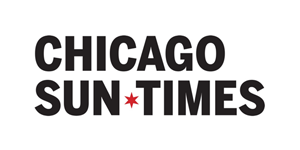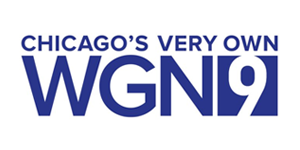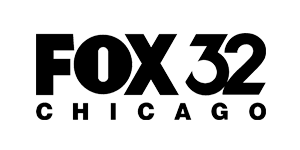
Learn More
Illinois Ridesharing Regulations for Uber and Lyft Accidents
Ridesharing has had a dramatic impact on Illinois transportation. Companies like Uber and Lyft have made it convenient for people to get around through the simple use of a smartphone app that connects them to drivers. While the majority of daily ridesharing occurs without incident, the popularity of Uber, Lyft and other such services raises concerns about liability in ridesharing accidents that cause serious injuries or even death. State lawmakers have put several regulations in place to help protect rideshare passengers.
The Convenience of Ridesharing Services Comes at a Cost
Since it was founded in 2009, Uber has grown into one of the world’s largest companies. Almost 100 million people use the app each month globally. The company has around 72 percent of Chicago’s ridesharing market share, with tens of thousands of drivers in the area.
According to the Chicago Tribune, the annual number of ridesharing trips in the city saw a 271 percent rise from 2015 to 2018. In just the two-month period from November to December 2018, more than 17 million rides were taken at an average of 286,000 trips per day.
The majority of ridesharing trips have been concentrated in Chicago’s downtown area. A 2019 study found that 50 percent of all rides citywide start or end in downtown, with a third of those both beginning and ending there. During the morning rush, 8,132 ride-hailing drivers complete 25,807 passenger trips, and numbers are even higher in the evening.
The popularity of ridesharing services such as Uber and Lyft is expected to continue, though not without consequences. Research from the University of Chicago Booth School of Business has linked the arrival of ride-hailing with a nearly 3 percent increase in the number of fatal motor vehicle accidents in the United States since 2011. This amounts to as many as 1,100 deaths per year. While the study does not suggest that rideshare drivers are getting into deadly crashes more than other motorists, it highlights the fact that the arrival of ridesharing means the addition of more vehicles to already busy roads.
Recent studies have found that ridesharing services have given rise to more traffic congestion. The increase in congestion is partly because rideshare drivers spend 40 to 60 percent of their time searching for passengers, a practice known as deadheading. Additionally, Uber’s simple system for signing up drivers means that just about anyone with a vehicle can get on the app and start earning money.
Key Ridesharing Regulations in Illinois
While ridesharing has become woven into the fabric of everyday life for most Chicago residents, concerns still remain about safety and insurance coverage. Unfortunately, the convenience and affordability of ridesharing services also bring about complex liability issues. There are uncertainties about whether insurance would cover passengers who request rides on services like Uber, Lyft or Sidecar if the vehicle was involved in an accident. Ridesharing services are different from licensed taxis, which have full insurance coverage for drivers and passengers involved in an accident. Because rideshare drivers use their own vehicles and are allowed to use their own personal insurance for liability coverage, many are often underinsured.
In recent years, Illinois and its localities have made efforts to regulate this popular mode of transportation. One important piece of legislation is the Illinois Ridesharing Arrangements Act, which is part of the Illinois Vehicle Code. The law lays out the framework in which ridesharing services must operate in the state, such as how fares are charged.
The Illinois Transportation Network Providers Act went into effect in 2015 to set statewide basic requirements for ridesharing companies and drivers in terms of insurance, safety standards, driver qualifications and more. The bill applies to ridesharing services, known as Transportation Network Companies (TNC), like Uber and Lyft. A TNC is any company that uses a digital platform to connect passengers with ride services provided by TNC drivers who use their own vehicles.
Insurance Requirements for Illinois Ridesharing Services
Illinois rideshare drivers must meet two different sets of insurance requirements. When drivers are logged into the ridesharing app and working but do not have passengers, they must carry liability insurance of at least:
- $50,000 for death and personal injury per person
- $100,000 for death and personal injury per incident
- $25,000 for property damage
Under the Illinois Transportation Network Providers Act, ridesharing companies must also maintain this coverage in case the individual driver’s insurance policy fails to meet these limits. This insurance requirement is more than the basic coverage required for all drivers in the state, which is $25,000 for death and personal injury per person and $50,000 for death and personal injury per incident.
From the time they accept passengers to when they complete rides, rideshare drivers must have insurance coverage of at least $1 million for personal injury, death and property damage. Drivers must also have underinsured or uninsured motorist coverage of $50,000 minimum. The coverage requirements must be satisfied by the driver, the ridesharing company or a combination of their policies.
Enhanced Background Checks for Rideshare Drivers
One of the unique things about ridesharing companies is that they allow people from all walks of life to make extra money by using their own vehicle. In the past, rideshare drivers typically did not have to meet the same strict standards that apply to drivers of traditional taxis or other licensed transport services. All they had to do to sign up with a ridesharing platform was to go through a simple application process and provide basic information. Just about anybody with a valid driver’s license and registered vehicle could become an Uber driver.
The company has been criticized for a lax screening process and faced reports of drivers committing sexual assaults and other crimes against passengers. Fortunately, in 2018 a law was introduced that strengthens background checks on rideshare drivers.
Before allowing someone to become a rideshare driver on their digital platform, the TNC or ridesharing company must review a driver history report and conduct a criminal background check that includes the National Sex Offenders Registry database. These checks can also be done by a third party.
Everyone who applies to be a rideshare driver in Illinois must provide certain personal information for the background check process including their full legal name, Social Security number, address, age, birthdate, driver’s license, motor vehicle registration and automobile liability insurance.
Besides background checks for drivers, the Illinois Transportation Network Providers Act imposes additional safety requirements. Drivers who do not have a valid driver’s license or are under the age of 19 do not qualify to become rideshare drivers.
Drivers with three or more moving violations or one major violation, such as reckless driving or driving on a revoked license, during the last three years cannot become a rideshare driver. Those who are registered sex offenders or have criminal convictions within the past seven years are also ineligible to drive for ridesharing companies.
The Act mandates that all ridesharing companies should enforce a zero-tolerance policy on alcohol or drug use when the driver is providing ridesharing services or is logged into the app. Any violations will result in an immediate suspension of the rideshare driver’s access to the app as well as an investigation.
Why Ridesharing Accident Cases Are Different From Other Car Accidents
If you are injured in a ridesharing accident, it is important to realize that your case is different from other car accident cases. The law generally provides better protection and more avenues for recovering compensation if you have been injured in a car accident. Unfortunately, filing a claim for compensation in a ridesharing accident can be more complicated as it involves the rideshare driver, the ridesharing company, and other motorists in some cases. There are specific liability policies in place that have strict limitations.
Because TNCs are still relatively new, ridesharing companies and drivers can get away with making things difficult for accident victims who file a claim. Additionally, insurance companies do not always treat claims fairly. If you have been injured in a ridesharing accident in Chicago or elsewhere in Illinois, you need to have an experienced Uber or Lyft accident attorney representing your interests. The lawyers at Briskman Briskman & Greenberg know exactly how to handle such cases to ensure a quick resolution that gets you the compensation you deserve. We address the legal nuances of ridesharing cases and the complexities of insurance liability with careful consideration.
Injured in a Chicago Ridesharing Accident? Contact Briskman Briskman & Greenberg.
At Briskman Briskman & Greenberg, we understand that being involved in any kind of accident can be devastating, and even more so if you have suffered serious injuries. If you have been hurt in a ridesharing accident, discuss your case with us to find out about your legal options for obtaining financial support to cover medical bills, rehabilitation, lost earnings, property damage and other losses you may have incurred.
Our Chicago Uber and Lyft accident attorneys are here to help you every step of the way so that you can focus on recovery while we get you compensation. We are committed to holding rideshare companies and negligent drivers accountable.




SEEN ON:







